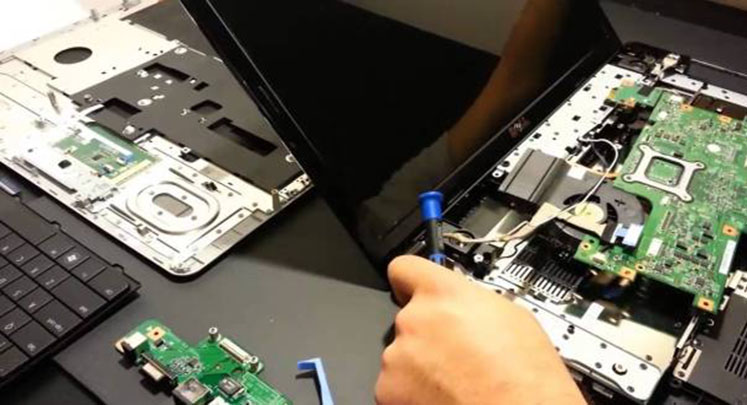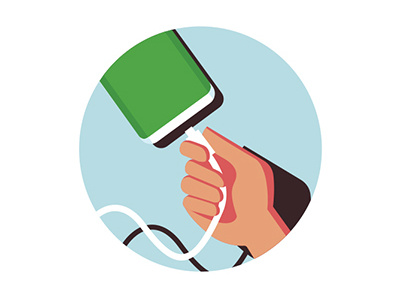How does a Magnetic Stripe on the Back of a Credit Card Work?
페이지 정보
작성자 Kayleigh 날짜24-04-27 15:30 조회7회 댓글0건본문
 The stripe on the back of a credit card is a magnetic stripe, often called a magstripe. The magstripe is made up of tiny iron-based magnetic particles in a plastic-like film. Each particle is really a very tiny bar magnet about 20 millionths of an inch long. The magstripe can be "written" because the tiny bar magnets can be magnetized in either a north or south pole direction. The magstripe on the back of the card is very similar to a piece of cassette tape fastened to the back of a card. See How Tape Recorders Work. On the next page, see how information is stored in the mag stripe and read by different types of machines. Each track is .110-inch wide. Track one is 210 bits per inch (bpi), and holds 79 six-bit plus parity bit read-only characters. Track two is 75 bpi, and holds 40 four-bit plus parity bit characters. Track three is 210 bpi, and holds 107 four-bit plus parity bit characters.
The stripe on the back of a credit card is a magnetic stripe, often called a magstripe. The magstripe is made up of tiny iron-based magnetic particles in a plastic-like film. Each particle is really a very tiny bar magnet about 20 millionths of an inch long. The magstripe can be "written" because the tiny bar magnets can be magnetized in either a north or south pole direction. The magstripe on the back of the card is very similar to a piece of cassette tape fastened to the back of a card. See How Tape Recorders Work. On the next page, see how information is stored in the mag stripe and read by different types of machines. Each track is .110-inch wide. Track one is 210 bits per inch (bpi), and holds 79 six-bit plus parity bit read-only characters. Track two is 75 bpi, and holds 40 four-bit plus parity bit characters. Track three is 210 bpi, and holds 107 four-bit plus parity bit characters.
 Your credit card typically uses only tracks one and two. Track three is a read/write track (that includes an encrypted PIN, country code, currency units, amount authorized), but its usage is not standardized among banks. Electronic data capture (EDC) magstripe card swipe terminals are becoming more common -- so is having you swipe your own card at the checkout. This is how it works: After you or the cashier swipes your credit card through a reader, the EDC software at the point of sale (POS) terminal dials a stored telephone number via a modem to call an acquirer. An acquirer is an organization that collects credit authentication requests from merchants and provides a payment guarantee to the merchant. Single dial-up transactions are processed at 1200-2400 bps, while direct Internet attachment uses much higher speeds via this protocol. In this system, the cardholder enters a personal identification number (PIN), using a keypad. Erased magstripe (The most common causes for erased magstripes are exposure to magnets, like the small ones used to hold notes and pictures on the refrigerator, and a store's electronic article surveillance (EAS) tag demagnetizer.
Your credit card typically uses only tracks one and two. Track three is a read/write track (that includes an encrypted PIN, country code, currency units, amount authorized), but its usage is not standardized among banks. Electronic data capture (EDC) magstripe card swipe terminals are becoming more common -- so is having you swipe your own card at the checkout. This is how it works: After you or the cashier swipes your credit card through a reader, the EDC software at the point of sale (POS) terminal dials a stored telephone number via a modem to call an acquirer. An acquirer is an organization that collects credit authentication requests from merchants and provides a payment guarantee to the merchant. Single dial-up transactions are processed at 1200-2400 bps, while direct Internet attachment uses much higher speeds via this protocol. In this system, the cardholder enters a personal identification number (PIN), using a keypad. Erased magstripe (The most common causes for erased magstripes are exposure to magnets, like the small ones used to hold notes and pictures on the refrigerator, and a store's electronic article surveillance (EAS) tag demagnetizer.
During a routine car check-up, a service attendant announces to you that it will take $500 to repair your car. Normally, this cost wouldn't be a big deal, but this month you had to pay your income taxes, and you took a hit. To make matters worse, you're supposed to go on a road trip in a week. Where are you going to get $500 in time to get the car fixed? You decide to head down to the place on the corner that advertises "Quick Cash Now." You've walked by it a hundred times but never had cause to go inside. You decide to give it a try. It's so easy! You're out the door in 15 minutes, and $500 will be deposited in your account sometime the next day. Sure, it cost you $50 in fees, but nothing beats that convenience, right? We could all use a little extra money. A payday loan could provide that money -- but it'll cost you.
This is the industry of payday lending, and it's served by more than 22,000 locations nationwide. In 2000, quick-cash companies in Washington State issued 1.8 million loans totaling $580 million. In this article, we'll learn about the purpose of payday loans, as well as the drawbacks of these quick-cash offers. The purpose of a payday loan is fast, easy money to take care of life's little emergencies. A payday loan is a short-term, high-interest loan. The usual amount of the loan is between $50 and $500. You obtain one of these loans from a payday lender, a company that often offers other convenient financial services, such as foreign currency exchange, utility bill paying and license processing. The process is actually quite simple. Payday lenders take advantage of banks' disadvantages. Visit a payday lender. These companies often have stores, but you can also apply by phone repairs near me or online. Some lenders do their business strictly online. This is a no bank loan application.
visit south shop
https://maps.app.goo.gl/cAKYMmsGriJV9ERt5
댓글목록
등록된 댓글이 없습니다.



















 광송무역
광송무역
 070-7762-8494
070-7762-8494

